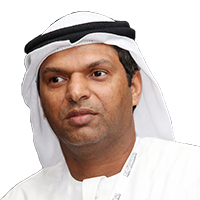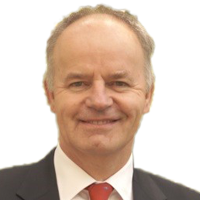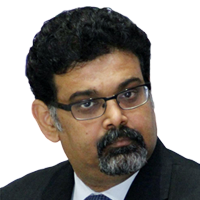‘Geo’-Powered Smart Cities
Speakers


BSI Group
United Kingdom

Ordnance Survey International
United Kingdom

City of Vienna
Austria

PwC
The Netherlands

ALAN BRISTOW Director of Road Space Management
Transport for London
United Kingdom

Fujairah Municipality
UAE

Trimble, Germany

Bentley Systems
The Netherlands

Australian Urban Research Infrastructure Network
Australia

Singapore Land Authority
Singapore

Atos International
The Netherlands

French National Council for Geographic Information
France

Indian Institute for Human Settlements
India

Twenty First Century Aerospace Technology (21AT)
China


Ordnance Survey
UAE

Geonovum
The Netherlands

City of Rotterdam
The Netherlands

Imagem
The Netherlands

KTH Royal Institute of Technology
Sweden
Background
A city is considered smart if it exhibits the ability to keep track of state of its environment and activities of its citizens and uses the information obtained to provide better services such as – greater automation, intelligent routing and transportation, better monitoring, and better city management. The enabling trends that coincide with smarter cities include the drive to open up municipal data for more transparent operations, the creation of sensor networks to improve infrastructure monitoring and performance, networked connectivity of the Internet of Things, and bidirectional communication with citizens regarding city services.
The essence of a smart city lies in the capturing of real-time data as well as its intelligent processing that enables various application areas ranging from managing environmental quality and the built environment to land use and transportation planning. Smart cities are the future to sustainably support population growth and urban expansion. Geospatial technology is central to providing a technology platform that forms the backbone of the city. It can increase speed, accuracy and cost-effectiveness related to a wide range of government priorities, including those related to crime prevention, emergency management, disaster recovery, social services, health care, transportation, urban planning, environmental initiatives, and facility planning and management.
When we talk about a smart city, instantaneously turns towards the aspect of infrastructure in the city. The potential for geospatial technologies in infrastructure is tremendous with advances in technologies like 3D modeling, LiDAR and other terrestrial scanning, mobile mapping, surveying, positioning services, remote sensing, high-resolution satellite imagery and photogrammetry. Interestingly, geospatial standards are a vital component of the building information modeling (BIM) picture. This integration of Geospatial Technologies and BIM is empowering today’s AEC industry as many forward looking national governments are planning to boost their infrastructure sector, making BIM implementation as a policy mandate for their major infrastructure construction initiatives.
As the world moves towards building their own sustainable and smart infrastructure, the role of Geospatial Technologies is gaining newer grounds as it is almost impossible to ignore its impact potential while building modern day human habitats.
Program Objective
The Geospatial World Forum is one of the most premier geospatial events in the world today. Each of the editions held till now have well and truly upheld the value of geospatial technologies across multiple sectors of an economy by bringing in experts from various fields providing the audience with a lot of interesting insights/takeaways related to these technologies and their application areas. The 8th (eighth) edition of this annual mega geospatial event will be held in Rotterdam during 23 – 26 May, 2016. With the action taking place in one of major smart cities of the world, Geospatial Media is proud to present a dedicated program on smart cities on 24/25 May during the event. With the theme – ‘Geo’-Powered Smart Cities, this day long program will feature experts from urban/city planning, research/academic institutes, engineers/consultants, mobility and transportation experts, technology providers, and many more. The end objective behind bringing all these experts under one roof is to facilitate brainstorming on the opportunities, challenges and scope for developing a truly smart city infrastructure while highlighting the importance of integrating ICT and Geospatial Technologies in this endeavor.
Scope
- Provide a forum for the interchange of ideas on Smart City development among the Government Agencies, Policy Makers, Researchers, AEC Experts, Transportation Experts, and Urban Planners along with Leaders from the ICT and Geospatial Industry;
- Advocate adoption of Geospatial and ICT solutions for smart urban planning, safety and governance for future smart cities;
- Invite discussions on smart city policies and regulations;
- Discussion on the importance and relevance of working with cutting edge technology areas such as IoT, Big Data Analytics, etc., in a smart city environment
Target Audience
- Policy Makers
- Government Departments & Public Sector Undertakings
- Urban Planners/Consultants
- Infrastructure Engineering Companies/Infrastructure Consultants
- Funding Agencies
- Project Executing Agencies
- Academic & Research Bodies
- IT Solutions Providers/Smart Technology Experts
- Geospatial Industry Experts
Program Outline: Session Themes
- Urban Development for Smart Cities: During the recent years, the rapid rate of increase in urbanization globally, has thrown a number of challenges to the city/urban planners to carve out to sustainable urban habitation for the rural-to-urban bound population without putting additional load on the already densely populated cities. Smart cities are emerging fast and they introduce new practices and services which highly impact policy making and planning, while co-existing with urban facilities. The time has come to understand the smart city’s contribution in the overall planning and vice-versa, to recognize urban planning offerings to a smart city context. This session will focus on exploring that relationship by inviting experts from urban/city planning departments, and technology experts who complement urban planning, highlighting the role of geospatial technologies in the process.
- Innovative Regulations and Policies for Smart Cities: Cities need an adequate set of policy and regulation frameworks in order to become smart. New governance concepts are required to coordinate and integrate with various smart city stakeholders such as – cities, businesses, and research organizations so as to identify the potential challenges and opportunities. There is a greater need for the stakeholders to come together and learn about new forms of governance and policy concepts to build on their respective smart city initiatives. This session will bring experts from the aforementioned stakeholder’s space to share their thoughts in this area.
- Mobility for Smart Cities: One of the biggest challenges of a smart city is to have an efficient transportation system. Considering that the whole idea behind smart transportation revolves around providing a congestion free, rapid commute experience for the citizens, it is important to note that Geospatial technologies provides that much needed flexibility to the system through technological inputs such as – periodic traffic forecasts, journey/route planning of public and private transport mobile applications (based on real time data), etc. The concept of smart transportation goes beyond vehicles as it puts equal emphasis on pedestrians and bicyclists. In addition to these, there are also concepts like Smart Traffic Signals, Smart Transport Cards, Smart Parking, Smart Toll, etc., that forms a backbone of an effective smart transport system. This session will endeavor to bring experts from these areas to understand, discuss, and deliberate on this concept in detail from a smart city perspective.
- Technologies for Smart Cities: Smart City solutions are currently based on multiple architectures, standards and platforms, which have led to a highly fragmented landscape. In order to allow cities to share data across systems and coordinate processes across domains, it is essential to break these silos. A way to achieve the purpose is sensor virtualization, discovery and data restitution. This is where the modern world is witnessing technological revolution in the form of Internet of Things (IoT), Cloud Computing, Big Data and Analytics. In Smart Cities, digital technologies translate into better public services for citizens, better use of resources and less impact on the environment. This session will invite participation from some of the global experts dealing with these technologies to human habitation, smarter.
- Governance and Safety for Smart Cities: E-Governance refers to the use by government agencies of information technologies (such as Wide Area Networks, the Internet, and mobile computing) that have the ability to transform relations with citizens, businesses, and other arms of government. These technologies can serve a variety of different ends: better delivery of government services to citizens, improved interactions with business and industry, citizen empowerment through access to information, or more efficient government management. The resulting benefits are less corruption, increased transparency, greater convenience, revenue growth, and/or cost reductions. Similarly, the demand for heightened public safety and security is also a fundamental component of what a Smart City must deliver to its citizens. To ensure that Smart Cities are in fact ‘Safe Cities’, they require the integration of security and safety infrastructure and assets with ICT. This session will focus on these two important aspects of a smart city bringing in relevant experts to share their insights in these areas.






